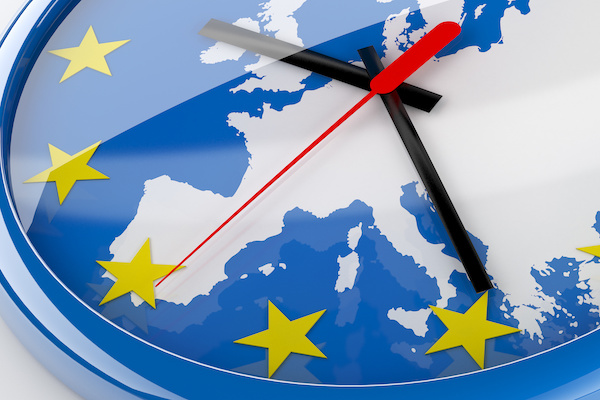25 February 2020
Brexit: love last 47 years


On 23 June 2016, David Cameron, former Prime Minister of the United Kingdom, held a referendum resulting in the departure of the UK from the European Union. However, it took over three and a half years – 1317 days to be more precise – for what turned out to be much more than a lost political bet, to finally materialise. Nevertheless, although Brexit became legally effective on 31 January, the soap opera had not yet found its epilogue as the thorny question of the future relations between the two parties remains. UFE takes stock of the current discussions and the aftermaths that could arise for the power sector.
The EU and the UK are now, as the name suggests, in a transition period which will end on 31 December 2020 when the current EU multiannual financial framework ends. In short, this means that, during this period, the UK will continue to apply the European regulations and contribute to the European budget. While the possibility of extending the transitional period until 2022 remains, the UK Executive is, for the time being, ruling out this option, forcing stakeholders to keep up the frantic pace of the talks.
Which future for the electricity market?
Although some subjects of negotiation such as the question of border controls of goods or the maintenance of the Erasmus programme occupy the media space more easily, the issue of the proper functioning of the internal electricity market remains crucial.
Currently, the approach which will be adopted regarding the management of electricity supply has not yet been decided and may not be decided before the end of the year. As a reminder, the United Kingdom benefits from current European regulations aimed at facilitating electricity exchanges on both short and long-term markets: the market coupling. This coupling, thanks to implicit allocations of cross-border capacities makes it possible to ensure better price convergence and thus economic gains on both sides. To maintain its participation in the coupling mechanism, one could imagine the establishment of a bilateral agreement, like Norway which benefits from an enhanced integration into the European energy market.
It’s only goodbye for now
On 29 January MEPs greeted their 73 colleagues from across the Channel to the tune of Auld Lang Syne (“It’s only goodbye for now”) after formally approving the UK’s exit agreement (621 votes in favour, 49 against, 13 abstentions). A historic moment, tinged with melancholy, that marks the beginning of a new reshuffle within the EP that will now be composed of only 705 members. While 27 MEPs elected last May will enter the EP, the 46 seats remaining will be temporarily frozen in the event of future enlargement. More specifically, the number of Liberals and Greens will be reduced, somewhat changing the political equilibrium.
If the British voluntarily chose not to put forward a candidate for the post of European Commissioner and did – more or less – remain on the sidelines during the negotiations within the Council, the first political consequences of Brexit will now begin to become more tangible. UFE intends to remain particularly vigilant so that the European ambition recently announced within the European Green Deal and through the objective of carbon neutrality by 2050 is fulfilled, in particular by maintaining a robust carbon price and preserving the integrity of the European carbon market (EU ETS). Close and fair cooperation between stakeholders will thus be more necessary than ever. UFE will be keen to defend the leading role of the French electricity sector, which will be called upon to play a decisive role in tomorrow’s low-carbon and increasingly renewable Europe.
Find out more


About us
The Union of the French Electricity Industry is the trade association of the French electricity sector. We bring together companies from the whole value chain of the electricity industry.
Find out more










